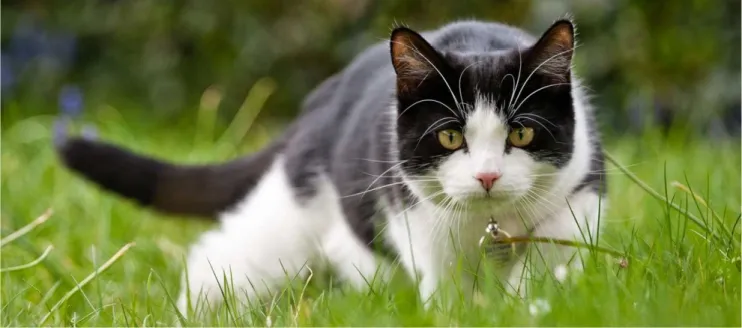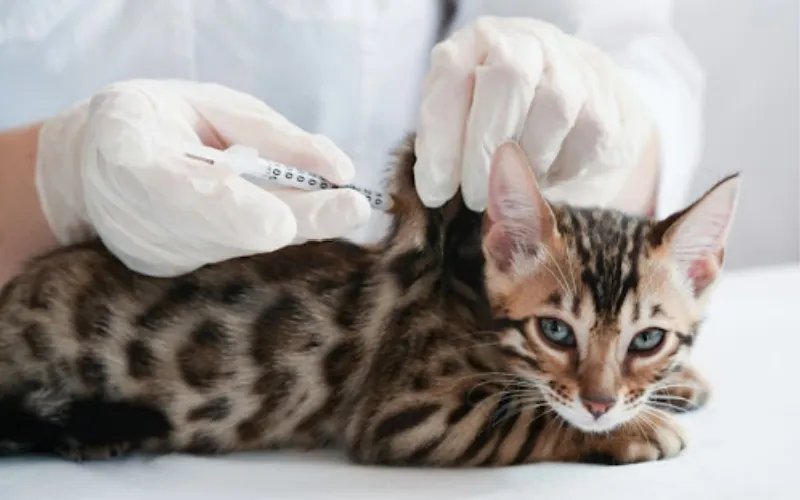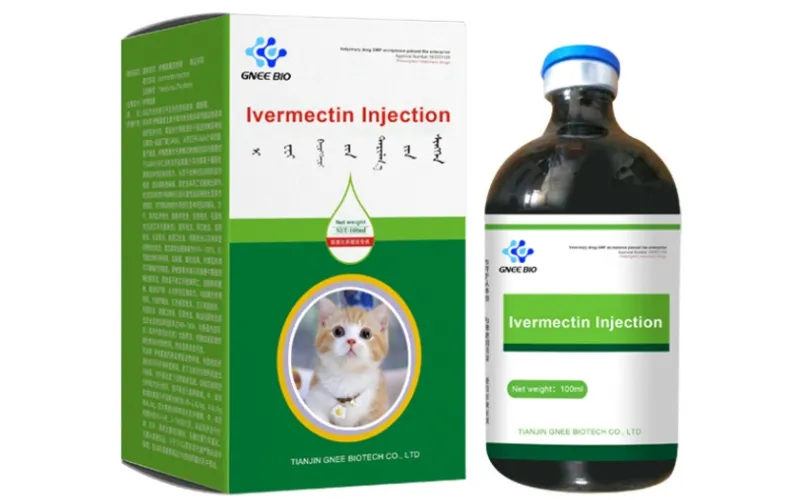
Ivermectin injection is a medication that is sometimes used in veterinary medicine to treat various parasitic infections in animals, including cats. However, it's important to note that the use of ivermectin in cats can be quite different from its use in other large animals, such as horses or livestock. Here’s an overview of ivermectin injection for cats, including its uses, dosage, precautions, and more.
In cats, Ivermectin injection is primarily used to treat:
External parasites: It is effective against fleas, ticks, and mites.
Internal parasites: It can be used to treat certain types of intestinal worms, such as roundworms and hookworms. However, the medication has been shown to be ineffective against tapeworms.
Heartworm prevention: Although less common in cats than in dogs, it can be used in specific cases.
It impedes neurotransmission within parasites by enhancing gamma-aminobutyric acid (GABA) activity—leading them ultimately toward immobilization. While this mechanism serves well against many external parasites such as mites or lice.
General Dosage: The typical dosage of ivermectin injection for cats is 0.1 to 0.2 mg/kg of body weight. However, the exact dosage may vary based on the specific condition being treated and should always be determined by a veterinarian.
Injection Site: It is often administered subcutaneously or intramuscularly. The veterinarian will decide the appropriate route based on the clinical situation.
Administration Procedure
Preparation: Ensure that the injection site is clean. Use aseptic techniques to avoid infection.
Choose the Route of Administration:
Subcutaneous (SC): This is the most common route for administering ivermectin in cats. The injection is given under the skin, usually in the scruff of the neck.
Intramuscular (IM): This route may also be used, particularly in cases where a more rapid absorption is needed.

Species Sensitivity: Cats are more sensitive to ivermectin than dogs. Dosing must be carefully controlled to avoid toxicity.
Health Conditions: Cats with certain health conditions, such as liver disease or those who are pregnant, may be at higher risk for adverse effects.
Drug Interactions: Always inform your veterinarian about any other medications your cat is taking, as ivermectin can interact with certain drugs.
Do not use in kittens younger than 6 weeks of age.
Avoid using alongside benzodiazepines, ketamine, erythromycin, spinosad, or certain anti-fungal treatments.
When given correctly, ivermectin is safe for most cats. Allergies to the drug are not common but can cause adverse reactions. Ivermectin toxicity can also occur if too much of the drug is given to a cat. Cats under 1 year of age are more prone to nervous system toxicity from higher doses. Some side effects include:
1. Blindness: Clinical signs of blindness can include cloudy eyes, uneven pupils, and bumping into objects.
2. Lack of coordination (also known as ataxia): cats suffering from ataxia may have a wobbly gait and sway when they walk.
3. Lethargy: When cats are lethargic, they may eat less, play less, and hide from humans with whom they are normally affectionate.
4. Dilated pupils (mydriasis): Cats’ pupils can become dilated if they are startled by something. However, if it is ongoing, it might be a concern.
5. Upset stomach: A cat with an upset stomach may vomit; have diarrhea; refuse to eat; or show signs of nausea, such as licking their lips.
6. Lack of appetite and/or thirst: If a cat is eating or drinking less than usual after receiving a dose of ivermectin, it should be mentioned to the veterinarian.
7. Seizures: Seizures cause unusual behavior, such as excessive drooling, aggressive behavior, and facial twitching.
8. Death: In the most extreme cases, ivermectin toxicosis can lead to death if the cat is not brought to the veterinarian immediately.
Cats suffering from ivermectin toxicosis need immediate and intensive veterinary treatment.

1. Is Ivermectin Injection Safe for Cats?
Ivermectin injection can be safe for cats when prescribed and administered correctly. It is crucial to follow the veterinarian’s recommendations regarding dosage and administration to minimize the risk of adverse effects. If you have concerns about using ivermectin for your cat, consult your veterinarian for personalized advice and alternatives if necessary.
2. Does Ivermectin have any Reactions with Other Medications?
Yes, ivermectin can cause reactions when combined with other medications. Some medications can increase the effects of ivermectin on a pet’s brain. It’s important for owners to discuss any medications and supplements that their cat is on with their veterinarian to avoid serious reactions.
3. What is the Alternative for Ivermectin Injection When Used as Dewormer in Cats?
While ivermectin is effective, it is crucial to note that not all cats tolerate it well. Some alternative medications, such as selamectin or moxidectin, are often recommended as safer options for treating parasites in cats. Additionally, certain breeds may have increased sensitivity to ivermectin, so it’s essential to consult with a veterinarian before administration.
4. How to Store Injectable Ivermectin?
Ivermectin injection should be stored in a cool and dry place away from heat and direct sunlight. If ivermectin is exposed to heat or moisture, it could reduce its effectiveness.
5. Where to Buy Ivermectin Injection for Animals?
While Ivermectin injection is available for animals, it’s essential to use the correct formulation. For pet owners wondering where to buy Ivermectin injections for animals, they should obtain the medication from an animal health professional or a qualified veterinarian.
Gneebio is a leading supplier of veterinary drugs in China. For more than a decade, we have been committed to the health and care of livestock and pets. We have developed ivermectin injections for many specific animals including horses, cattle, pigs, dogs, cats, etc. Also available in oral form, it will be your trusted choice.